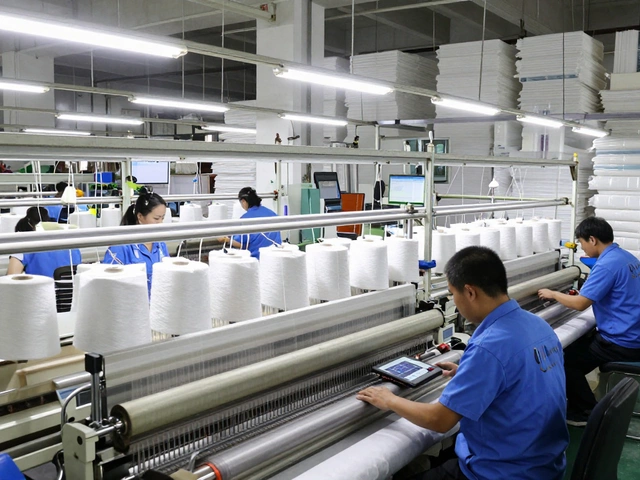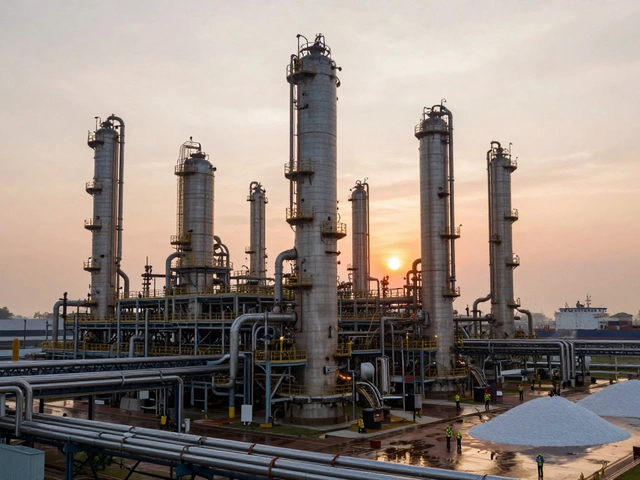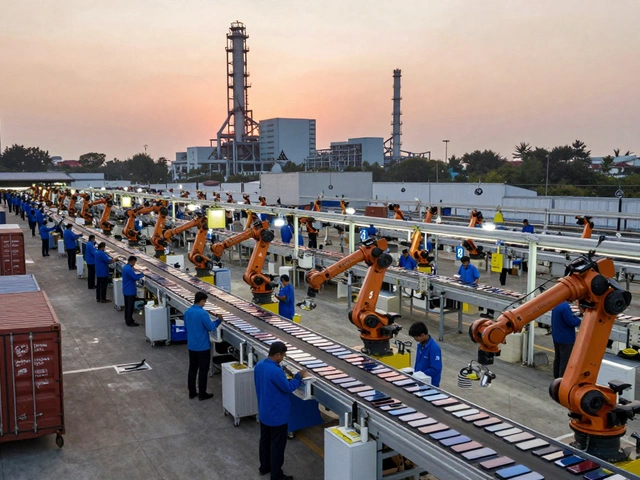Chemical Pioneer – Innovations, Regulations & Industry Impact
When you hear the term Chemical Pioneer, a person, firm or breakthrough that creates new chemical solutions for manufacturing, health and sustainability, industrial chemist, you picture someone pushing the boundaries of what chemicals can do. A true chemical pioneer encompasses research, product development and policy influence. This role requires deep R&D, advanced equipment and a solid grasp of safety standards. In India, the work of a chemical pioneer often intersects with Banned Chemical, a substance prohibited by law because of health or environmental hazards, shaping how new formulas are designed to stay compliant.
One major arena where chemical pioneers leave their mark is Synthetic Textile Production, the creation of fabrics like polyester and nylon using petro‑chemical processes. The push for lighter, stronger and more sustainable fibers drives innovators to tweak polymer chemistry, reduce water usage, and meet global quality standards. At the same time, the food industry leans on these experts for Food Processing Chemicals, additives, preservatives and cleaning agents that keep large‑scale kitchens safe and efficient. From commercial food processors in restaurants to massive canning plants, the chemistry behind flavor retention and microbial control is a direct result of pioneering research.
Key Areas Shaped by Chemical Pioneers
The pharma sector illustrates another critical link. Pharma Manufacturing, the large‑scale production of drugs, vaccines and active pharmaceutical ingredients depends on precise chemical syntheses, clean‑room environments, and rigorous quality checks. A chemical pioneer in this space not only improves drug efficacy but also trims production costs, making medicines more affordable. Meanwhile, the broader manufacturing ecosystem—whether it’s a small factory in Gujarat or a high‑tech plant in Hyderabad—relies on the same core innovations. The classic "factory system" advantage of mass production is amplified when new chemicals reduce waste, speed up curing times, or extend equipment life.
These connections form a web of influence: a chemical pioneer drives safer food processing, which influences the regulatory landscape for banned chemicals; the same breakthrough can be adapted for synthetic textiles, enabling greener fabrics; and pharma manufacturing benefits from the same chemical efficiency, lowering costs for patients. In practice, this means that any new polymer discovered for a textile can later be repurposed as a coating for medical devices, while the lessons learned from banned chemical compliance feed back into safer food‑grade additives.
Reading through the posts below, you’ll see real‑world examples of these dynamics. One article breaks down how restaurants choose commercial food processors, highlighting the chemicals that keep food safe on a busy kitchen floor. Another details the cost of launching a small factory in India, where chemical choices can make or break a budget. You’ll also find deep dives into the largest pharma hub in 2025, the top synthetic textile manufacturers, and the ever‑changing list of banned chemicals in India. Each piece ties back to the core idea that a chemical pioneer fuels progress across sectors while navigating strict regulations.
Whether you’re a startup founder looking to enter the chemical space, a manufacturer curious about greener additives, or just someone who wonders why certain chemicals disappear from shelves, this collection gives you a practical roadmap. The insights here blend technical detail with business strategy, showing how innovation, compliance and market demand intersect every day.
Now that you’ve got a clear picture of what a chemical pioneer does and why it matters, explore the articles below to see these concepts in action across food processing, textile production, pharma hubs and more.
Who is the ‘God of Chemistry’ in India? Meet Prafulla Chandra Ray
Explore why Prafulla Chandra Ray is known as the ‘God of Chemistry’ in India, his key discoveries, founding of Bengal Chemicals, and lasting impact on modern Indian science.
Read More




